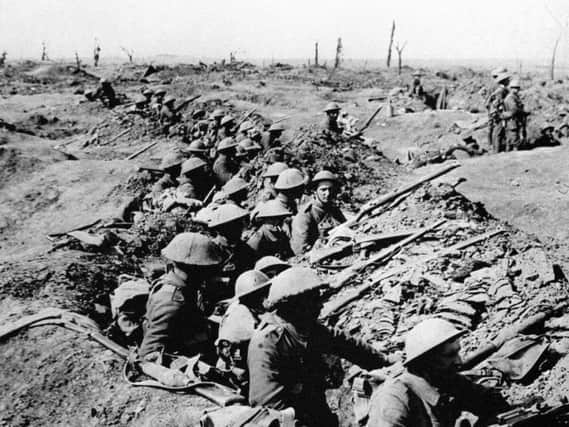The hardships endured by this South Shields prisoner of war


One of them is local historian Pamela Siegel (nee Stobbs) whose great uncle Arthur Ernest Dawes fought against the Germans – and who was one of seven million prisoners of war held by both sides, between 1914 and 1918.
This is the first part of Pamela’s account of the hardships endured by her uncle and the many other PoWs.
Advertisement
Hide AdAdvertisement
Hide Ad“There were more than seven million prisoners of war,” reveals Pamela, “of which 2,400,000 were held in Germany, and 167,603 of these were British.
“Here is the story of my great uncle Arthur Ernest Dawes.
“He was born in 1888, in King’s Lynn, Norfolk, the youngest of five children, whose parents were Charles Seapy Dawes and Eleanor Shafto.
“After his birth, the family moved to South Shields.”
Following the outbreak of the First World War, Arthur, and at least one of his siblings joined up – brother, Percival, was killed in action in 1917.
“Arthur can be found on the 1911 census, he was serving in the 2nd Border Regiment, Private 9345. Unfortunately, his service records were destroyed in 1940 when a German bombing raid struck the War Office repository in Arnside Street, London. I know very little of his army career.”
Advertisement
Hide AdAdvertisement
Hide AdHowever, Pamela was able to fill in the gaps, and give an insight into her uncle’s capture and treatment in captivity.
“On September 5, 1914, he was moved to Lyndhurst, in Hampshire, and attached to the 20th Brigade in the 7th Division.
“On October 6, 1914, the 7th Division landed at Zeebrugge in Belgium. Twenty days later, on the 26th, Arthur was captured by the German Army and was a prisoner of war for the duration, interned at Münster I, Dülmen then Münster III, in North Rhine-Westphalia, Germany.
“The so-called Turnip Winter of 1916 to 1917 was particularly tragic in the PoW camps. There was famine throughout Germany after failed harvests and the British blockage of the North Sea.
Advertisement
Hide AdAdvertisement
Hide Ad“Because of the difficulty in feeding the German people, the supply of food to the prisoners was affected.”
Pamela says a report by English PoW Al Bonsey reveals that “prisoners got bread in the morning with a cup of chestnut coffee, a thin vegetable soup for lunch and coffee substitute with war bread made with cornmeal in the evening”.
Stories are told how hunger drove the men to search through rubbish pails, where they discovered that the inedible meat in that day’s soup had “come from a dachshund”.
Such conditions inevitably led to death, the main causes of which were cholera, typhus and exhaustion. Alongside the Order of St John, the British Red Cross worked hard to help the prisoners.
Advertisement
Hide AdAdvertisement
Hide Ad“Through the central Prisoners of War Committee, they co-ordinated relief for British prisoners of war. Every prisoner would receive an adequate supply of food, toilet articles and clothing.
“Parcels of food, each weighing abut 10 pounds, were delivered fortnightly to every prisoner who had been registered.”
Four different types of parcels were sent on rotation to add variety. One such would contain:– three tins of beef; quarter pound of tea; quarter pound of cocoa; two pounds of biscuits; two tins of cheese or loaf goods; one tin of dripping, two tins of milk and 50 cigarettes.
“In North Rhine-Westphalia area, they were put to work in farming, coke works, mines, dynamite factories, cleaning the streets of the nearby towns.
Advertisement
Hide AdAdvertisement
Hide Ad“Working parties would leave the camp about 7am with a two-hour rest at midday and returning to camp at sundown.
“ They were paid at a rate, determined by their level of skill and type of work. They did not receive their pay in official German currency as it was feared they could accumulate large sums of money and then bribe guards to help them escape, instead, they were paid in Lagergeld (camp money).
“They could use the money to purchase goods at the camp store which helped to supplement their food rations.”